Keynote Speaker
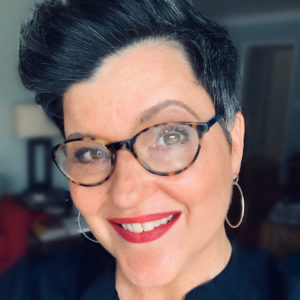
Karen Kelsky
Writer, Speaker, CEO
Talk Title: Managing the Academic Job Search
Karen Kelsky is the Founder and CEO of The Professor Is In, a full-service individual and institutional consultancy on the academic job search and all elements of the academic and post-academic career. She speaks nationally and internationally on topics related to Ph.D. professionalization, and is a columnist at Chronicle Vitae. As the creator of the Sexual Harassment in the Academy Survey and the #MeTooPhD hashtag, Karen speaks nationally on issues of sexual assault in the academy, with a focus on empowering victims and training people in leadership. She is a former tenured professor and department head at the University of Illinois at Urbana-Champaign and University of Oregon. Her book The Professor Is In: The Essential Guide to Turning Your Ph.D. Into a Job (Random House 2015), is going into a second edition. Check out the Professor Is In podcast. Also, find her on Facebook at The Professor Is In and The Professor Is Out, on Twitter, and in her 2021 TEDx talk, Academia Is a Cult.
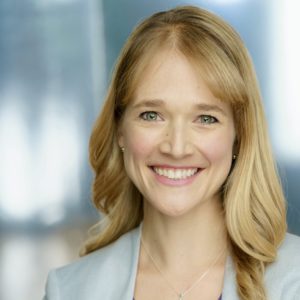
Bri McWhorter
Activate to Captivate
CEO
Talk Title: Learning to Lead
During your career, there will be times when you are asked to step into a leadership position. This transition often happens quickly so it is important to be prepared. This workshop will highlight helpful phrases to encourage a collaborative environment, how to prepare for various meetings, and how to craft clear and concise content. Whether you're interested in a job in academia or industry, this workshop will help you step into a leading role.
Bri McWhorter is the Founder and CEO of Activate to Captivate, where she teaches communication techniques from an actor’s point of view. She specializes in public speaking, scientific communications, interview skills, and interpersonal communications. She has taught workshops at Fortune 500 companies, privately coached VPs and CEOs, and led certificate programs at top universities. She has an MFA in Acting from University of California, Irvine and a BA in Theater and Performance Studies from University of California, Berkeley.
Academic Panelists
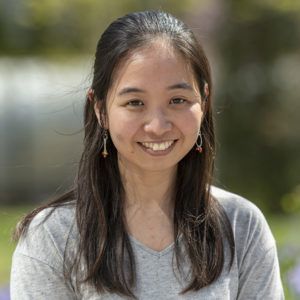
Chihway Chang
Kavli Institute for Cosmological Physics at University of Chicago
Assistant Professor
I work on weak gravitational lensing data in the Dark Energy Survey and different techniques in combining these measurements with other data sets such as the galaxy position and CMB lensing. I like to explore the weak lensing data in non-conventional ways to learn about cosmology as well as galaxy evolution. With a background in (LSST and DES) image simulations, I rely on various kinds of simulations in my work. On the side, I am interested in the prospects of HI intensity mapping in the future large radio projects.
Publications
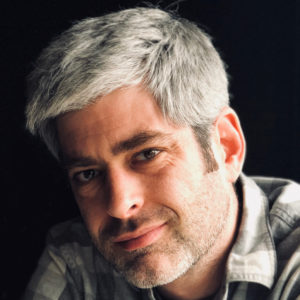
Dan Hooper
Kavli Institute for Cosmological Physics at University of Chicago & Fermi National Accelerator Laboratory
Professor
I'm a particle cosmologist, focusing on dark matter searches, high-energy astrophysics, and the physics of the early universe. I'm a senior scientist at Fermilab and a Professor of Astronomy & Astrophysics at the University of Chicago.
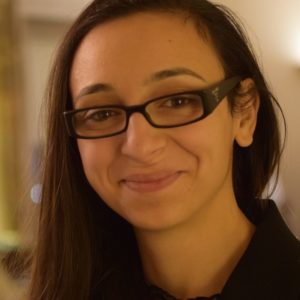
Lina Necib
Kavli Institute for Astrophysics and Space Research at MIT
Assistant Professor
Professor Necib is an astroparticle physicist, interested in understanding the origin of Dark Matter. She uses a combination of simulations and observational data to correlate the dynamics of Dark Matter with that of the stars in the Milky Way, and infer properties of Dark Matter. She has investigated the local dynamic structures in the Solar neighborhood using the Gaia, and contributed to building a catalog of local accreted stars using machine learning techniques. She has also discovered a new stream called Nyx after the Greek Goddess of the Night, and is using spectroscopy to identify its properties. Professor Necib is interested in using Gaia in conjunction with other spectroscopic surveys to understand the Dark Matter profile in the local solar neighborhood, the center of the Galaxy, and in dwarf galaxies. With a background in particle physics, Professor Necib relates the empirical results of Dark Matter to current direct and indirect detection experiments.
Professor Necib is originally from Tunisia. She moved to the US in 2008 to attend Boston University, where she obtained a Bachelor of Arts in Mathematics and Physics in 2012. She then obtained a PhD in theoretical physics from MIT, under the supervision of Professor Jesse Thaler. Subsequently, she moved to California where she was a Sherman Fairchild fellow at Caltech from 2017 to 2020, a Presidential Fellow at the University of California Irvine in 2020, and a Fellow in Theoretical Astrophysics at Carnegie Observatories 2020-2021. Finally, she joins MIT faculty in July 2021.
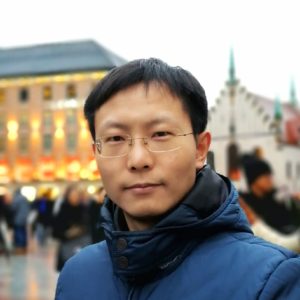
Ke Wang
Kavli Institute for Astronomy and Astrophysics at Peking University-Beijing
Assistant Professor
Ke Wang observes high-mass star formation at high resolution. He is an expert in submillimeter interferometry and has served in the European ALMA Regional Center and the SMA operations team for more than 5 years. His research characterizes the initial conditions of high-mass star formation throughout the Galaxy by observing various samples of molecular clouds in different Galactic environments. Observations at multiple scales are made using submm/mm/cm interferometers including ALMA, SMA, and VLA, and space- and ground-based single-dish telescopes including Herschel, GBT 100m, Effelsberg 100m, Nobeyama 45m, IRAM 30m, JCMT 15m, APEX 12m, CSO 10m, and SMT 10m. Currently, he mainly works on three projects:
(1) resolving starless infrared dark clouds; he has discovered one of the few known high-mass prestellar cores, a long-sought key observable for a leading theoretical model of star formation;
(2) a Galaxy-wide census of the largest molecular filaments; he has made the first census of the densest, coldest, velocity-coherent large-scale (>10 pc) filaments in the Milky Way; and
(3) a systematic survey of dense molecular clouds in the outer Galaxy; he is principal investigator of the ESO Public Survey SAMPLING (SMT "All-sky" Mapping of Planck Interstellar Nebulae in the Galaxy) and co-investigator of other complementary surveys, including superMALT, SEDIGISM, and SCOPE.
His research has been highlighted by scientific organizations including AAS NOVA, ESA, Harvard, and the UK Royal Astronomical Society, and public media including ScienceDaily and Space.com.
Industry Panelists
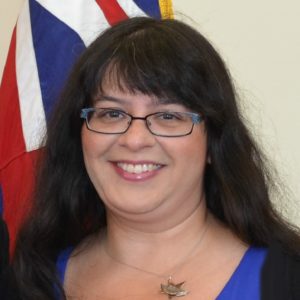
Reba Bandyopadhyay
National Science Foundation
Legislative and Science Policy Analyst
Reba is an astronomer whose primary research interest was infrared and X-ray observations of X-ray binary stars – systems containing a black hole or a neutron star – in our Galaxy. After attending MIT and Oxford, she was a National Research Council Associate in the Naval Research Laboratory's Space Science Division, a UK-based support astronomer for the international Gemini Observatory, and then research faculty in Astronomy at the University of Florida. Reba entered the science policy ecosystem as the American Physical Society’s Congressional Fellow in 2014. As a policy fellow in the office of Senator Brian Schatz (Hawaii), she worked on the Senator’s education, science, space, and aviation portfolios. She then spent two years as an AAAS Science and Technology Policy Fellow in the Office of the National Science Board (NSB), the statutory governing board and policy-making body of the National Science Foundation, and in 2017, joined the office as a permanent federal employee. She is now the (first ever!) Legislative and Science Policy Analyst for the NSB, where she specializes in Congressional relations and national science and engineering policy.
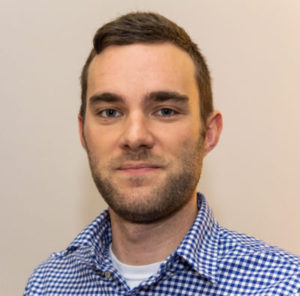
Max Malacari
Bain & Company (Chicago, US)
Consultant
Max was a postdoctoral researcher at the University of Chicago’s Kavli Institute for Cosmological Physics from 2016 to 2019. Prior to that he received his PhD in high-energy astrophysics from the University of Adelaide (2016, Australia). He joined Bain & Company as a Consultant in July 2019, and has spent the last two years working across multiple industries and capabilities, from the acceleration of clinical trial enrollments in the healthcare sector, to redesigning the go-to-market strategy of a retail measurement company.
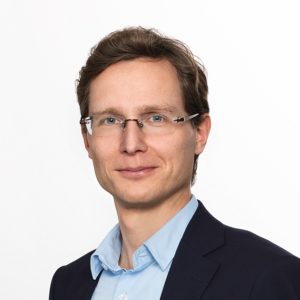
Andreas Schulze
OmegaLambdaTec GmbH (Germany)
Data Scientist
Andreas Schulze studied Physics at the University of Potsdam. He received his PhD in astrophysics from the Leibnitz Institut für Astrophysik (AIP) in Potsdam. Afterwards, he worked as a Postdoctoral researcher in Beijing (China) and Tokyo (Japan), with a focus on observations and the statistical analysis of active supermassive black holes. Since 2018 he works as a Data Scientist at OmegaLambdaTec. His focus is on predictive Modelling, Simulation and IoT. He leads the OmegaLambdaTec Smart Grid solution and works on customer projects in the fields of Smart Energy, Smart Infrastructure, Mobility and Industry 4.0.

Benjamin Wu
NVIDIA Research (US)
AI Residency
Benjamin Wu received his B.S. in physics and mathematics from Duke University and M.S. and Ph.D. in physics from the University of Florida. In 2016, he joined the Division of Theoretical Astronomy at NAOJ as a JSPS postdoctoral fellow researching massive star formation. In 2018, he participated in the NASA Frontier Development Lab, an AI research accelerator program to address challenges in space exploration. Afterwards, he rejoined NAOJ as a postdoctoral fellow with the ALMA Project. Since fall 2020, he has been an AI Research Resident with NVIDIA and research affiliate with NAOJ.
At NVIDIA, he is part of the Learning and Perception Research group, which focuses on deep learning and computer vision research. He currently works on problems at the intersection of machine learning and astrophysics. His projects include sparse-to-dense image reconstruction from astronomical interferometry, physics-informed neural networks for fluid simulations, and deep learning vision applications for planetary rover autonomy.